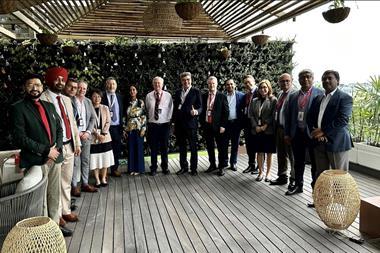Toll Holdings, Australia’s largest international logistics company, is to be sold to the Japanese post office in a deal worth A$8bn.
The announcement came the day after another giant of the Japanese freight industry, Kintetsu World Express, said that it was buying APL Logistics from Singapore-based shipping operator NOL Group.
Toll will be run as a division within Japan Post but will retain its name. The deal will spearhead Japan Post’s ambitions to become a leading global logistics player.
Toll management will remain in place with chief executive Brian Kruger reporting to his Japan Post equivalent, Toru Takahashi.
Japan Post is offering A$9.04 per share in cash, which Toll says is roughly a 50 per cent premium to the current price and represents an implied market capitalisation of A$6.5bn and an implied enterprise value of A$8bn. It said the offer was “a compelling transaction for shareholders” and that the Toll board was unanimously in favour.
Toll chairman Ray Horsburgh added: “Japan Post is one of the world’s leading postal and logistics companies and Toll is the largest independent logistics group in the Asia Pacific. Together, this will be a very powerful combination and one of the world’s top five logistics companies.
“We are proud that Toll is a great Australian success story, having grown from small local origins in 1888 to this outstanding outcome today for Toll shareholders and employees. Critically, it will enhance our service to existing and new customers.”
Toll will appoint an independent expert to investigate whether the offer is in the best interests of Toll shareholders, due to report in mid- April.
On the same day as the takeover announcement, Toll Group published its interim financial results in which it said that while improvements have been seen in the forwarding business – and in Toll Global Express Japan – “market conditions have been weaker” in Australia.
Commenting on the results, Brian Kruger said: “We don’t expect the domestic economy to pick up any time soon, so we will continue to focus on the areas under our control. This includes portfolio rationalisation, reducing fixed costs, continuing capital investment to support cost efficiencies and future growth.”









